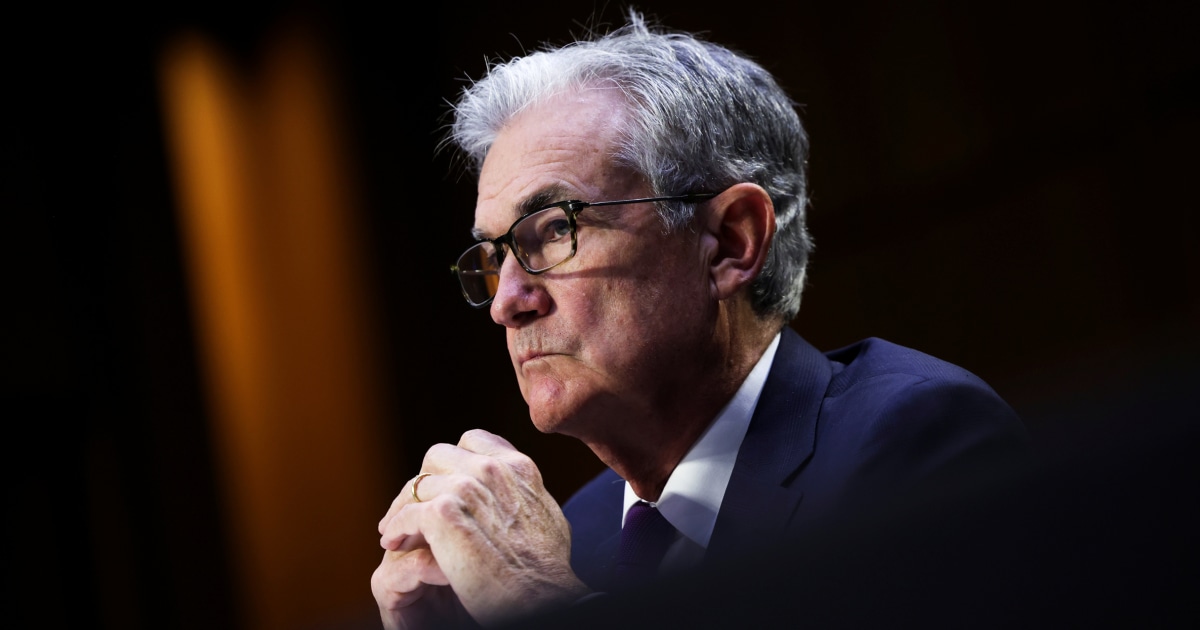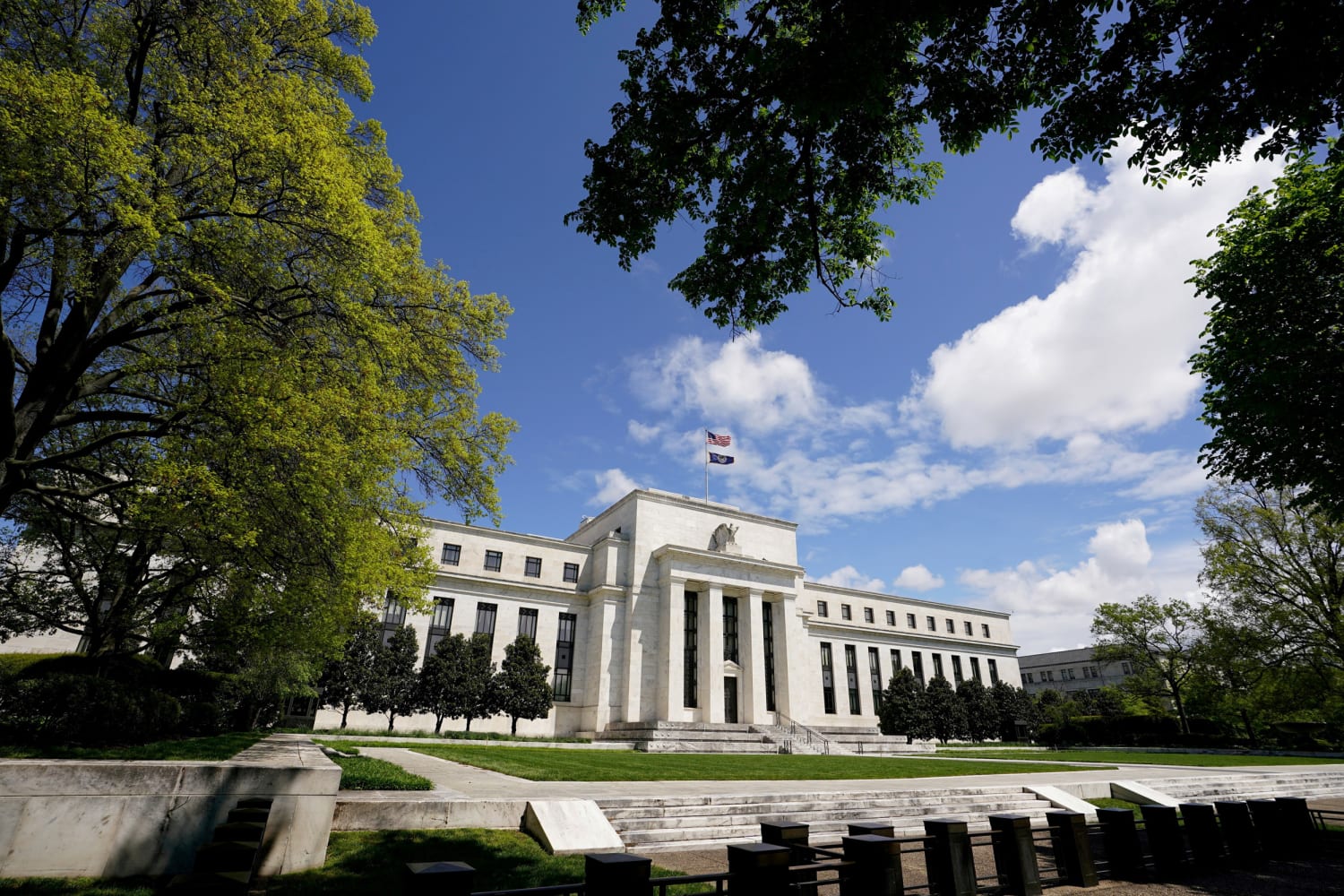
President Joe Biden on Monday renominated Jerome Powell as Federal Reserve chairman, ending months of speculation over who would run the central bank for the next four years, the White House announced in a statement.
Powell had drawn ire from some progressives who have pushed the central bank to expand its dual mandate of keeping people at work and prices in check, and focus more on climate change and racial equity. Some Democrats also had argued that he has been too hands-off as a bank regulator.
Fed governor Lael Brainard was nominated to serve as vice chair, the White House also announced.
“Chair Powell has provided steady leadership during an unprecedently challenging period, including the biggest economic downturn in modern history and attacks on the independence of the Federal Reserve,” the statement read. “President Biden has full confidence in Powell and Brainard’s experience, judgment, and integrity to continue delivering on those mandates and to help build our economy back better for working families.”
As a Republican appointed in 2017 by a Republican president to lead the Fed, Powelll had drawn solid support from GOP lawmakers for much of his tenure, although that support had become checkered in recent weeks as the specter of sharply rising inflation rose to dominate the headlines.
A jump in consumer prices to a 30-year high, combined with the worry that prices would remain elevated for a duration that stretches the boundaries of “transitory” — the Fed’s preferred descriptor — has triggered criticisms that Powell is not being proactive enough in the fight against inflation.
Economists and policymakers had been speculating for months as to whether Biden would take the unusual step of choosing not to reappoint Powell to a second term (although Powell also succeeded a single-term Fed chair).
As head of the central bank of the world’s largest economy and de facto reserve currency, it is arguably the highest profile role, with high stakes, in the realm of economic policy.
While Fed nominees are confirmed by the Senate, five progressive members of the House, led by Rep. Alexandria Ocasio-Cortez, D-N.Y, issued a statement in August agitating for a new Fed chair. “We urge President Biden to re-imagine a Federal Reserve focused on eliminating climate risk and advancing racial and economic justice,” the statement read, in part.
In the Senate, Elizabeth Warren, D.-Mass., emerged as the most high-profile Powell foe. She blasted the Fed chair at a hearing in October, calling him a “dangerous man to head up the Fed.” Warren was also the only member of the Senate Banking Committee to vote against Powell’s nomination in 2017.
Despite this left-wing opposition from both chambers of Congress, no one suggested the name of someone to replace Powell if Biden chose not to renominate him.
Randal Quarles, whose position as vice chair for supervision expired last month, recently resigned as governor, giving Biden another opportunity to fill a Fed seat.
The assumption among monetary policy wonks is that the unspoken preference of progressiveswas Brainard, who would most likely take a more aggressive approach to bank oversight and regulation. She also has targeted income inequality as a source of economic destabilization and pushed for the central bank to take a more active role around the financial risks of climate change, two issues that have won her fans among progressive lawmakers.
Brainard’s name also came up for Treasury secretary in the Biden administration, although the White House ultimately went with Janet Yellen, the Fed chair who preceded Powell.
Yellen expressed her support for Powell, saying in a statement on Monday that she was “pleased our economy will continue to benefit from his stewardship.”
“Over the last two years, the American economy has endured one of the most challenging episodes in our nation’s history,” Yellen continued in her statement. “The global and domestic economies were brought to a standstill and millions of American families were at risk of permanent scarring. Today, our economy has rebounded with strong job creation, low unemployment, and economic growth that has outpaced our global competitors. The steady leadership of Chair Powell and the Federal Reserve helped ensure that America’s economy was able to recover from a once-in-a-generation health and economic crisis.”
Powell was initially appointed to be on the Fed Board of Governors by Barack Obama and took office in 2012. Nominated by Donald Trump to lead the Fed, Powell initially faced skepticism from some lawmakers, particularly on the left, because of his background in investment banking and private equity rather than economics. But since his appointment, Powell has generally enjoyed broad-based support.
For his handling of the economy, including executing unprecedented actions to keep the financial system from collapsing in the early days of the pandemic, Powell won bipartisan praise. He has frequently cited the need for economic and labor market gains to be broad and inclusive as rationale for maintaining accommodative economic policy in the wake of the pandemic-triggered recession.
“If the people who are at the margins of the economy are doing well, then the rest of it will take care of itself,” Powell said in a “60 Minutes” interview on CBS in the spring. In congressional testimony, this stance has drawn approval from Democratic lawmakers and challenges from Republicans.
This was not the only criticism Powell has faced during his term. Most recently, he came under fire after two regional Fed bank presidents, Robert Kaplan of Dallas and Eric Rosengren of Boston, resigned after financial disclosures found that they had made trades during the pandemic that could benefit them financially. In response, the Fed implemented new restrictions on the financial activities officials can undertake. In a statement, Powell said that what he characterized as “tough new rules” would restore public trust in the central bank’s actions.
In addition to the role of chairman, Biden had a few vacancies to fill at the Fed: There was one vacant seat on its Board of Governors when he took office, as Trump nominees Stephen Moore and Judy Shelton failed to get congressional backing.
By appointing Powell to a second term, and then choosing nominees like Brainard more aligned with progressive priorities to fill the remaining open positions, policy experts say Biden has succeeded in shaping the Fed’s most influential policymaking body to conform with his administration’s goals and priorities.
Source: | This article originally belongs to Nbcnews.com









